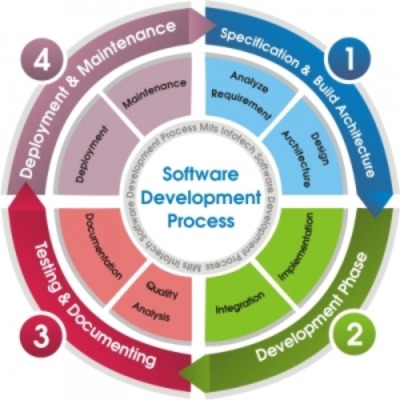In today's rapidly evolving technological landscape, small and medium-sized businesses (SMBs) face increasing pressure to innovate and stay competitive. However, many SMBs struggle to develop and maintain sophisticated software applications in-house due to limited resources, expertise, and budget constraints. Managed software development services offer a viable solution by providing expert teams, advanced technologies, and cost-effective solutions.
White Paper: Leveraging Managed Software Development Services for SMBs
Introduction
In today's rapidly evolving technological landscape, small and medium-sized businesses (SMBs) face increasing pressure to innovate and stay competitive. However, many SMBs struggle to develop and maintain sophisticated software applications in-house due to limited resources, expertise, and budget constraints. Managed software development services offer a viable solution by providing expert teams, advanced technologies, and cost-effective solutions.
Challenges Faced by SMBs in Software Development
- Skill Gap: Difficulty in finding and retaining skilled software developers.
- Time Constraints: Limited resources and time to focus on core business activities.
- Cost Overruns: Unforeseen expenses and project delays can lead to budget overruns.
- Security Risks: Vulnerability to cyber threats and data breaches.
- Lack of Scalability: Difficulty in adapting to changing business needs.
Benefits of Managed Software Development Services
- Access to Expertise: Leverage the expertise of experienced software developers and engineers.
- Cost-Effective Solutions: Optimize resource allocation and reduce development costs.
- Faster Time to Market: Accelerate development cycles and bring products to market sooner.
- Enhanced Quality and Reliability: Benefit from rigorous testing and quality assurance processes.
- Scalability: Easily scale your software solutions as your business grows.
- Security and Compliance: Ensure data security and compliance with industry standards.
Key Considerations for Selecting a Managed Service Provider
- Experience and Expertise: Look for a provider with a proven track record and deep industry knowledge.
- Communication and Collaboration: Effective communication is crucial for successful project delivery.
- Security and Compliance: Prioritize security measures to protect sensitive data.
- Scalability and Flexibility: Ensure the provider can adapt to your evolving needs.
- Cost-Effectiveness: Evaluate pricing models and look for value-added services.
- Customer Support: Assess the provider's support services and response times.
Best Practices for Successful Managed Software Development
- Clear Communication: Establish clear communication channels and expectations.
- Agile Development Methodology: Adopt agile methodologies to promote flexibility and rapid iteration.
- Version Control: Use version control systems like Git to manage code changes effectively.
- Continuous Integration and Continuous Delivery (CI/CD): Automate the build, test, and deployment process.
- Security Best Practices: Implement robust security measures, including encryption, access controls, and regular security audits.
- Performance Monitoring and Optimization: Monitor application performance and optimize as needed.
Conclusion
By leveraging managed software development services, SMBs can overcome the challenges associated with in-house development and focus on their core business. By carefully selecting a reputable provider and following best practices, organizations can achieve their software development goals efficiently and cost-effectively. Contact keencomputer.com for details.
References
- Project Management Institute (PMI): https://sceweb.sce.uhcl.edu/helm/SWEBOK_IEEE/SWEBOK_Guide_2004.pdf
- The Agile Manifesto:
- DevOps Handbook:
- Cloud Computing Concepts:
By following these guidelines and leveraging the expertise of a reliable managed service provider, SMBs can unlock the full potential of software development and drive business growth. Contact keencomputer.com
